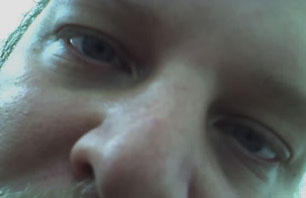A Federal judge has ruled that America's National Day of Prayer is unconstitutional based on the fact that, "It goes beyond mere 'acknowledgment' of religion because its sole purpose is to encourage all citizens to engage in prayer, an inherently religious exercise that serves no secular function in this context."
My personal opinion is that this is a far too narrow (conservative, small C) view of the Establishment Clause of the First Amendment of the Constitution of the United States. This judge sees the establishment clause as being limited only to "acknowledging" (i.e., not hindering / discouraging / disparaging) any and all religions, but cannot positively or negatively influence participation.
The most liberal (small L) reading of The Establishment Clause in the constitution is that the American Government shall never adopt an "official religion" for America... no more and no less.
My personal reading of The Establishment Clause is that the American Government shall not favor — neither by proclamation nor practice — any single religion but can confirm and recommend the general concepts of all religions (faith, meditation/prayer, holy texts, divinity/theology) as a whole.
Also, I do not think that atheism qualifies as a religion, or that "Freedom of Religion" means freedom to never be exposed to the concept of religion by government action. I have a narrow definition of religion, limited to a well-established worship of, and faith in, the supernatural and/or spiritual teachings, beliefs, or lessons of now-deceased people (or other life forms) of superhuman origin or destination.
Let's look at this from an "outside religion" perspective. Change "Freedom of Religion" to "Freedom of Music" for a thought exercise. Therefore, the government shall not choose to play rock music and exclude country music. The government shall not play music or get involved in the business of music at all.
But, the government declares next Tuesday a National Day of Dance. That's fine: America can dance to any music. People who hate music aren't required to dance, or come within earshot of music next Tuesday... but if they should happen to be exposed to music, they shouldn't be allowed to blame the government for making it more likely that they will hear music or see dancing on that day when they might also hear music and see dancing any other day of the year.
Additionally, the government has not "promoted music." People who aren't interested in music are not going to find a love of music through introduction to dance. That's backwards. Dancing comes from love of music, as prayer comes from love of religion.
So, my opinion is that The National Day of Prayer is constitutional. The only thing I would say counts against it is that there are some religions which have "meditation" or "spirit walks" or some other name for the action of sitting in quiet contemplation of one's faith and spirituality. Other than that: A bad (timid) decision by a judge that sets a bad precedent for many federal holidays, Freedom of Speech, and other harmless Government acknowledgements and encouragements of various subjects of emotion, faith, and spirituality.
You can expect this decision to be overturned by the Supreme Court.
Subscribe to:
Post Comments (Atom)


No comments:
Post a Comment